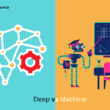Auditing AI decision-making is possible by checking the data, and algorithm, and having a transparent decision-making process in place; where the inputs and logic behind a conclusion are available. Later, any stakeholder can question it if necessary. This can boost confidence in AI decision-making.
Only by being proactive, we can guarantee that AI is used in a responsible and ethical manner. Actions like retraining personnel, offering diverse data, and setting laws and standards to regulate its use are all options for reducing the danger.
Cyberattacks and the spreading of false information are only two examples of potential misuse of AI. The employment of AI-controlled weapon systems that can function independently of human involvement, raises ethical concerns and may have unexpected repercussions. Developing stringent security measures and establishing regulations and guidelines to control the use of AI will be essential to reducing the risks associated with its abuse.
Because Data teach AI, it might unintentionally absorb and spread bias if the models it uses to learn from are not representative of the population. Training AI systems on varied and expected data and routinely auditing AI systems for discrimination in their decisions can reduce the risk associated with bias.
More mature AI will eventually replace human workers in the data processing and customer service fields. Because machines will be doing the work humans used to do, this could significantly increase the unemployment rate. In contrast, automation fueled by AI may lead to gains in efficiency and savings. Helping people whose jobs might be taken over by machines by teaching them new skills and doing other things can make the effects on society less bad.
There is a possibility that AI will replace human financial analysts and consultants. Nevertheless, for the time being, it is more likely to automate particular procedures and boost the efficiency and accuracy of decision-making. Although AI-based systems can provide helpful insights and assistance, they may require human supervision and interpretation. Additionally, a human touch and emotional intelligence are crucial in many domains, such as financial planning and counseling. It may be challenging for AI-based systems to achieve this level of human intelligence and sensitivity.
By analyzing patterns and inconsistencies in the data associated with financial transactions, AI can help identify instances of potential fraud. It is important to teach machine learning algorithms to detect the key features that are shared by fraud cases from the past, so that they can detect the possibility of fraud in future transactions. An algorithm might notice a sudden uptick in activity from a suspicious area, IP address, or a shift in the typical spending patterns associated with a given account.
Some challenges of using AI in finance include data privacy and security, bias in AI algorithms, and job displacement. Ensuring the confidentiality and security of sensitive data is critical to maintaining trust and compliance with regulations. Additionally, It is crucial to train the AI system on the latest and unbiased data. Because if the data is wrong, then the algorithm will be too. Furthermore, automating tasks and decision-making by AI systems could reduce the need for human labor in certain areas, such as data entry, analysis, and customer service.
Increased productivity, accuracy, and lower costs are just some advantages of applying AI to the financial sector. Data entry and analysis are only two examples of boring yet time-consuming operations that AI-powered systems can automate. The algorithms can also spot patterns and outliers in data that humans would overlook. AI can also assist financial organizations in reducing the impact of fraudulent activity and poor investment decisions.
Artificial intelligence (AI) is a field of computer science dealing with developing robots and other computers that can learn, solve problems, make decisions, and see patterns in data in the same way humans can. Fraud detection, risk management, investment management, financial planning, and customer service are just a few of the many uses of AI in the financial sector.
The application of artificial intelligence is helping forecast weather patterns and improve the efficiency of energy generation from renewable sources such as solar and wind power. This helps to boost the efficiency as well as the cost-effectiveness of systems that utilize renewable energy.
Storage solutions for renewable energy are becoming cheaper and more efficient because to AI research and development. The ability to store excess energy for later use is a significant step toward making renewable energy widely applicable.
With the help of AI, energy management systems are becoming more effective and affordable. By gaining a deeper insight into and command over their energy use patterns, both energy providers and end users may save money.
AI can improve grid management and control by forecasting and eliminating power outages, improving energy distribution, and assuring the integration of renewable energy sources.
Renewable energy sources are becoming more AI-efficient, reducing energy use and waste. There will be less pollution from the energy sector because of this. Energy companies are using AI to optimize the use of carbon capture and storage technology, this process is reducing pollution as well.
AI has a lot of positive effects on society, but it also has the potential to hurt people. This includes the loss of jobs due to automation, the widening gap between rich and poor, and the disruption of markets and industries. Social effects include trouble with communication and relationships, less empathy and less emotional intelligence. This also includes the psychological effects of being too dependent on technology. Concerns about privacy, bias, and discrimination in AI systems, control, and freedom in decision-making are all ethical effects. Some of the political effects are that a few tech companies have a lot of power. There aren’t enough rules and inspections, and so there are effects on national security and defence.
AI may serve to reinforce preexisting prejudices and sexism. Since AI is educated using data, it is susceptible to reflecting and amplifying any inherent biases in that data; if it is not diverse or representative. This can lead to discrimination in the workplace, the financing system; and the court system against particular groups, such as minorities and women.
This is one of the concerns when we talk about ai and the future of human society. Yes, AI may cause employment loss as a result of automation. This negative impact of AI on society is currently under huge debate. As technology improves, machines and algorithms will take over more and more human jobs. Many people can lose their employment due to this, especially in easily automatable sectors like manufacturing and transportation.
In other words, How can we avoid the negative impact of AI on society? Several things can be done to ensure the ethical and socially responsible development and implementation of AI. This includes considering the effects that AI will have on society and taking measures to mitigate any negative consequences. Ensuring that AI is transparent, accountable, and fair; putting in place proper oversight and regulation. Investing in retraining and education programmes to assist those who may be impacted by job loss due to automation. Moreover, we should think about the ethical and social implications of AI as well.
When we talk about the negative impact of AI on human society, How can we ignore our defence and security? The development of artificial intelligence by other countries can lead to a military arms race. The application of AI in weapons systems might pose ethical problems. Concerns about privacy and civil liberties are not limited to applications of AI in areas like surveillance and cyber security. Now more than ever, it is essential to have suitable rules and monitoring in place to ensure that the use of AI in national security and the military is in line with international ethical standards and regulations as the field rapidly advances.
AI impacts society in several ways, including economically, socially, and politically. On the economic front, AI has the potential to both displace jobs and create new opportunities. AI is changing how we interact with each other and technology, raising questions about ethics. Politically, AI has the potential to change the way decisions are made in government and politics but also raise concerns about transparency and accountability.
Advancements in AI include Natural Language Processing (NLP), Computer Vision, Robotics and Machine Learning. NLP deals with the interaction between computers and humans using natural language. On the other hand, computer vision deals with how computers can be made to interpret and understand visual information from the world. While, Robotics deals with the design, construction, and operation of robots; and machine learning deals with the ability of computers to learn and improve from experience without being explicitly programmed.
AI has the potential for numerous benefits, such as improving healthcare, enhancing efficiency and productivity, and giving new opportunities for growth and innovation. However, it could also have unforeseen repercussions, such as losing privacy or eliminating jobs. We need to think about what will happen if AI is used irresponsibly and then work to prevent that from happening.
Making sure AI-powered systems are open, answerable, and fair is crucial for AI’s ethical advancement and use. It’s also essential to consider the damage that could result from implementing AI in susceptible fields like medicine and law enforcement. Investment in research and development, support for education and training programs, and open and honest discourse about the future of AI and its impact on society are all essential components of responsible development and usage of AI. In addition, governments need to set up legislation and regulations to implement AI.
There is concern that AI will remove the human workforce by automating many jobs. It’s also worth noting that AI can pave the way for brand-new occupations in fields like data analysis and machine learning. AI also has the potential to change the nature of work, which would require new skills while also making people more capable. This means that humans will have to adjust and acquire new abilities to coexist with AI in the workplace rather than being replaced by it.
The term “AI effect” describes the common mental bias whereby people overestimate the limitations of AI systems while underestimating their capabilities. This can reduce funding for AI R&D and prevent people from realizing the advantages that AI could bring about.
The effect of ai is unimaginable. AI influences us in numerous ways, including the automation of tasks, increased efficiency and productivity, and the creation of new technologies. Various industries, such as healthcare and finance, are also utilising AI to enhance services and make them more accessible.
The four main types of AI are: Reactive Machines: AI systems that can only react to the current situation and do not have the ability to learn from previous experiences. Limited Memory: AI systems that can store and use previous experiences to inform current decision-making. Theory of Mind: AI systems that can understand and simulate human emotions and mental states. Self-Aware: AI systems that have the ability to be self-aware and consciousness.
AI can help with day-to-day tasks by automating things like making appointments and handling emails. AI can also let you use chatbots and virtual assistants to get information and services. In addition, AI is utilized in the healthcare industry to improve diagnostic accuracy; in the financial sector to detect fraud. Additionally, AI can increase energy efficiency and manage traffic jams.
GPT-3 is a more advanced language model than others because it can create text that sounds like human speech. This can help them do tasks and understand the context better than others.
Due to its superior ability to generate text that is shockingly close to human speech, complete tasks, and understand context, GPT-3 is a more sophisticated language model than its competitors.
GPT-3 uses multiple programming languages, such as Python, C++, and TensorFlow.
Future applications for OpenAI GPT may include medical diagnosis, customer service, and perhaps code production in addition to natural language processing and other areas of study.
While GPT-3 shows promise as a programming assistant, it still needs to be at the level where it can fully replace human coders. To guarantee efficacy and accuracy, human supervision is still necessary.
No, Google LaMDA is not open source.
This is subject to interpretation and depends on one’s concept of “true AI.” LaMDA is a complex NLP model that can make text that sounds like a person wrote it but doesn’t have consciousness or self-awareness.
No, Google’s LaMDA is not sentient. It is an advanced NLP model capable of generating human-like writing but lacks consciousness.
It depends on whether Google has made the model publicly accessible. Google has not, to my knowledge, formally announced a natural language processing (NLP) model dubbed “Google LaMDA” as of 2021.
No, Google has not created a sentient AI. But they have developed advanced NLP models, they do not have consciousness or self-awareness.
This is up to how you look at it and what power are you talking about. Right now, OpenAI’s GPT-3 and Google’s BERT are two of the most advanced NLP models.
To some extent, this is up for debate and may evolve as more advanced Ai models are created. OpenAI’s GPT-3 and Google’s BERT are two of the most sophisticated natural language processing models available today.
Of course, this is about LaMDA vs GPT. This is a question of opinion and may evolve when new AI models are created. OpenAI’s GPT-3 and Google’s LaMDA are presently two of the most advanced NLP models for dialogue.
Artificial intelligence (AI) systems and technologies have come a long way in recent years. DeepMind, a Google subsidiary, is at the forefront of this revolution. DeepMind is building AI systems, that can take over certain jobs that require a lot of intelligence.
DeepMind primarily makes money through its collaboration with Google and the development of AI technologies and products sold to businesses and other organizations.
Google bought DeepMind to get access to its talented AI researchers and cutting-edge AI technologies. Google saw the potential in DeepMind’s work and wanted to be on the cutting edge of AI, A field that is changing quickly.
Yes, Elon Musk was one of the early investors in DeepMind.
With the field expanding at such a quick rate and new AI systems being constantly developed, ranking the most advanced AI in the world is challenging. AlphaGo, AlphaFold, GPT-3, and DALL-E are only some of the most cutting-edge AI systems currently available.
It is difficult to determine which is better, as both DeepMind and OpenAI have different focuses and priorities. Each company may be better suited to varying types of AI applications and use cases.
Google DeepMind and OpenAI are both leading players in the field of AI. DeepMind is a Google company focusing on making artificial intelligence systems that can do tasks requiring human intelligence. At the same time, OpenAI is a non-profit research organization with a broader focus on friendly AI.
Some of the competitors of OpenAI include DeepMind, IBM Watson, Microsoft AI, and Baidu AI.
OpenAI is a non-profit research organization and does not aim to make a profit. It does, however, get some money from grants, partnerships, and selling its AI systems and technologies.
No, Python is not part of OpenAI. Python is a programming language widely used in AI and is used by OpenAI for some of its AI systems and technologies.
The recommended amount of RAM for GPT-3 is 16GB, but we recommend at least 32 GB. Nonetheless, 32GB or more is recommended to ensure GPT-3’s smooth operation.
GPT-3 is considered one of the most powerful AI models that can be used now. It has shown that it can understand and create natural language at a high level.
GPT-3 is built on the PyTorch framework and is trained using the Python programming language.
GPT-3 is one of the most advanced AI models regarding how well it understands natural language. But other AI models are very good at voice and image recognition.
The term “smartest AI” is subjective because it depends on the specific task or problem being addressed by the AI. GPT-3 is regarded as one of the most advanced AI models for processing natural language, but other AI models excel in other areas.
GPT-3 has been trained to work well with many kinds of text, including code. However, it is not intended to write code in the same manner as a human developer. It is possible to produce code snippets, but they will need to be reviewed by a person to ensure that it is proper and comprehensive.
While GPT-3’s natural language creation capabilities are impressive, the tool is not meant to take the position of human programmers. Helpful for things like code generation, but human review is still needed to ensure everything works as intended.
When AI is combined with Web3 technologies, we talk about Web3 AI. For example, AI can manage data better, tighten privacy and security, and boost the performance and scalability of distributed software.
AI can be used in Web3 to improve security and privacy, make it easier to manage data, make it possible for decentralized autonomous organizations (DAOs), connect to smart contracts, and make decentralized applications more efficient and scalable.
Web3.0 itself does not have artificial intelligence. However, AI can be integrated with Web3 technologies to enhance its applications and functions.
Using NLP, conversational interfaces, and suggestions based on the user’s context, AI in web development can improve the user experience. Website optimization, including search engine optimization (SEO) and load time, is another area where AI has proven useful.
The three critical elements of AI are data, algorithms, and computing power. AI systems require large amounts of data to train algorithms that run on robust computing systems.
AI is expected to take over some parts of the web since building a website requires creativity and making decisions. But AI can help web developers by automating specific tasks and making building sites easier.
Artificial intelligence can be applied to various types of webs, including Web1.0, Web2.0, and Web3.0. But AI is significant for Web 3.0 because it can make decentralized apps safer, more private, and more efficient.




